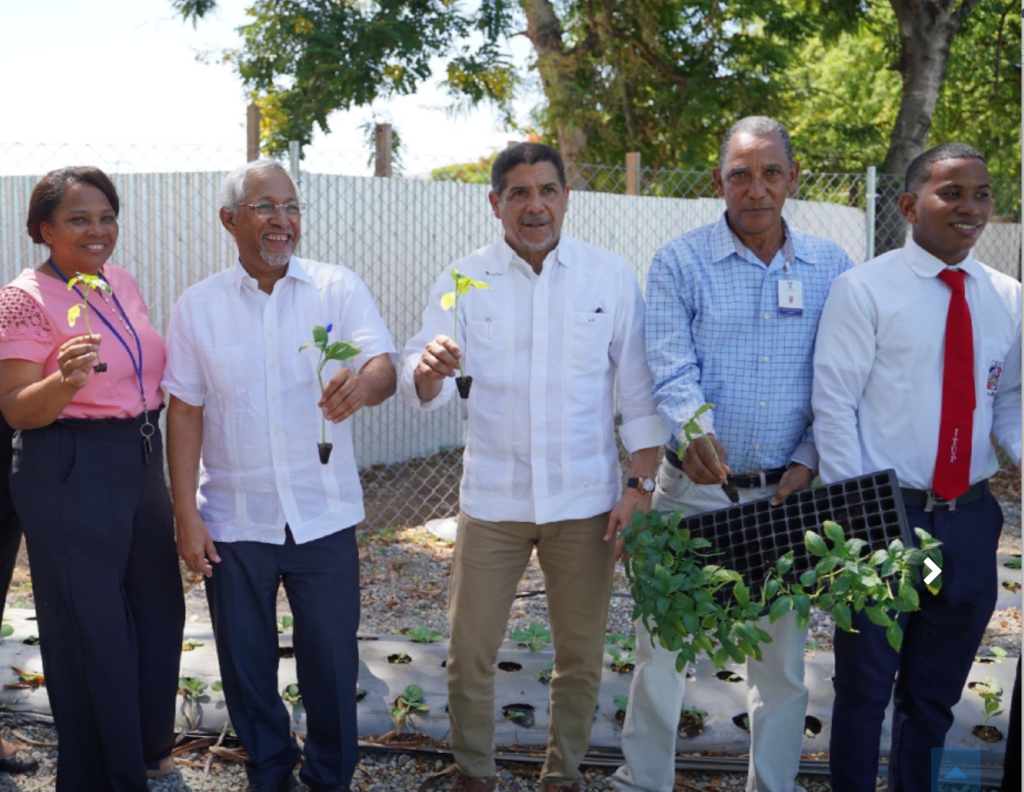
Education Minister Ángel Hernández and Agriculture Minister Límber Cruz were at the Union Panamericana high school in Santo Domingo for the official start of the nationwide farm-to school movement.
The ministers were there for the planting of lettuce, celery, peppers, cauliflower, tomatoes, eggplant, spinach, and other vegetables by the students at the schoolyard garden of the public high school that is located in the Miraflores sector of the National District.
Education Minister Hernandez says the School Gardens Program will be implemented in 2,000 public and private educational centers nationwide. He said the intention is to plant food that is good for health and improve the quality of life of the low-income population.
“We seek to strengthen collaboration between students, teachers and parents through activities such as planting, transplanting and observation. The students themselves will be in charge of maintaining these gardens and can replicate them in their communities,” said Hernández.
For the implementation of this project, the two ministries are offering technical support, training, supply of materials and logistical support to those in charge of the production of these organic foods, which are intended for the consumption of students, school administrators and parents.
Hernandez said that learning where food comes from at an early age could encourage students to chose a trade that can be useful in life, and even make changes in their life dynamics.
“When children are involved in productive tasks, learning things that are useful for life, they share what they have learned with their neighborhood, at home, with their community and try to make their family live better. When all the children who have been involved in this process can replicate this at home, it will help the family economy,” said Hernández.
Cruz said the Ministry of Agriculture before joining the program had already backed the creating of around 40 school gardens. He said that when you teach someone to produce from a very young age, you are sending important messages.
“When we create a garden in a school, we are sending an important message to the youth, we are telling them that there will be no life if there is no food, but we are also teaching them to produce from a very early age,” said Cruz.
“For me, what we are doing today marks a milestone, it has double importance. First because it is about food, and second because it is about education. These two ministries must always go hand in hand, it is not possible to prepare and educate with hunger,” he stressed.
The Minister of Agriculture said that there will be no sustainability if there is no education, since education teaches and prepares you to be aware. He advocated for responsible and environmentally friendly agriculture.
The Huertos Escolares program will incorporate different types of agricultural production structures, from open-air production to greenhouses and drip irrigation systems. A variety of edible plants will be grown.
As for the seed germination system, techniques will be taught on how to strengthen the seedlings and ensure proper management of nutrition, pest and disease control, substrates and irrigation.
Read more in Spanish:
Ministry of Education
22 June 2023

